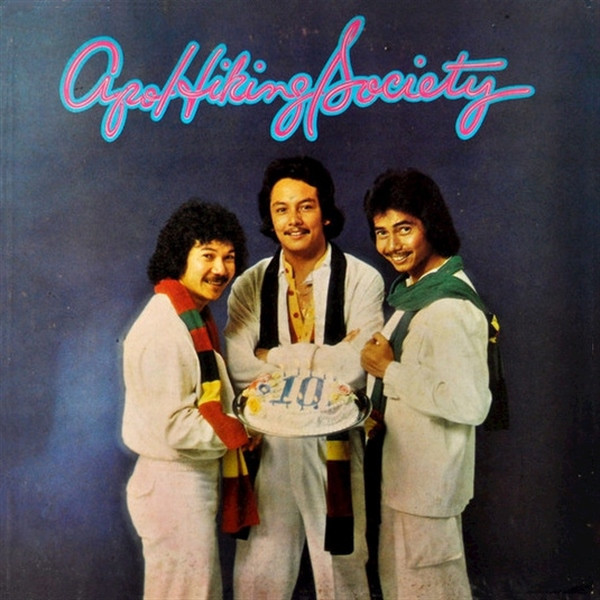APO Hiking Society and the riotous seventies
Peace. Happiness. And a whole lotta weed.
The “Peacock Revolution” arrived during the early ‘70s in Manila as the bell-bottom years, kind of a polite euphemism imported from the United States for a lot of free sex, unconventional attire, and “Manila Sound”.
I would venture to say that our version of the Hippie movement was much tamer than its American counterpart, drawing attention on bohemian fashion and music than groupies, although I’m sure there were some of that, too. Men wore shirts with hippie-cum-folk designs, five-inch clogs for shoes, flamboyant satin shirts, turtlenecks, and for the girls, midi skirts, dyed blouses, frayed jeans, headbands and gauchos.
And yes, the “hippie-happy brownies”.

Top it all with the unconventional long hair for men and equally long straight hair for women, and you’ve got the whole Flower Power doodad down to the last curl and beads. Until martial law banned it.
It was in this breakaway generation, in 1969, that the musical ensemble Apolinario Mabini Hiking Society, or simply APO Hiking Society, was formed. At first, they had 15 members all coming from the Ateneo de Manila high school.
It wasn’t until Danny Javier, Jim Paredes and Boboy Garrovillo took the reins of the group sometime mid-1970s, if I’m not mistaken, and ran away with the popstar glow.
It was likewise an intriguing time as many songs back in the day took the form of protests:
It's been so long since I had a glance / Of what I think I really am.
I recall hearing APO’s “American Junk” in the late 1980s, in a sleazy third world bar in Padre Faura of all places. It was a lost generation’s rather humorous cri de guerre against the ongoing colonial state of mind westerners seems to carry with them wherever they went.
The song, sung in a funny sort of parody depicting how we may sound in the ears of westerners, dons the lyrics of what today may be the genesis of a “woke” generation:
Get it out of my bloodstream
This song in particular, which was written in 1989, did much to articulate the broad sentiment of the rabblerousing Filipino youth, those persecuted by the martial law regime in the years prior to People Power.
The group’s tracks didn’t always carry with it the rhodomontade of the pained and disenfranchised. “Awit ng Barkada” zeroed in on the general sadness of youth, its sporadic depressions, and whatever sense of failure they may be experiencing at the time.
The song wasn’t pedantic or doctrinaire; just a simple reminder that the gang will be with you through thick and thin:
Kami'y kasama mo.
In a largely old-fashioned country where the word “barkada” makes for one-third of the triumvirate of “sins” to avoid if you ever want to succeed in life—booze and “basag ulo” being the other two—the idea was somewhat pleasantly seditious, if you think about it.
“Blue Jeans,” to me, is perhaps one of the most impertinent of all their songs as it questions capitalism’s treatment of the education of the youth. Apparently, even back then, getting a degree wasn’t synonymous to success, much less a paygrade worth wasting on mud-spattered Reeboks.
Hindi pa rin
I believe it would be stretching it a bit to call APO Hiking Society the forerunners of modern protest music in the country. I and some music experts would preferably give the accolade to Heber Bartolome and his song “Oy Utol, Buto’t Balat Ka Na’y Natutulog Ka Pa,” a critique of the indifference prevalent in society back when martial law was in its heyday. It would be more accurate to say that Jim Paredes, Danny Javier and Boboy Garovillo gave the youth their voice.
Whatever freedom the youth had within arm’s reach to sing those lines at a time when the country had yet to heal from its gaping wounds provided my generation the impetus not remain silent:
Kahit bata pa man
For APO Hiking Society, kabataan and karapatan were no more strangers than fire is to light.


